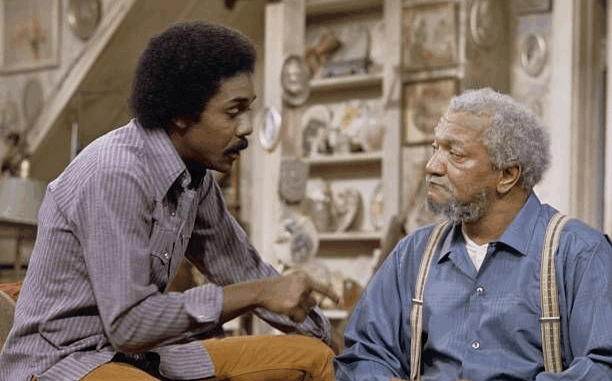
When Sanford and Son debuted in 1972, few expected a sitcom led by a Black father-and-son duo to redefine American television. But one particular episode changed everything — and the true impact has been quietly buried in history books.
That episode? “Lamont Goes African.” At first glance, it was a quirky story about Lamont embracing his African roots while Fred Sanford grumbles in his usual hilarious way. But what made this episode historic was its timing — it aired just months after the United States’ involvement in a major African diplomatic scandal, and network execs were reportedly terrified.
In a groundbreaking moment, Sanford and Son addressed identity, race pride, and generational conflict through sharp humor. Lamont’s dashiki, Fred’s mockery of African drums, and the final reconciliation sparked heated debates across households. This was 1973. Black pride had only just begun to enter mainstream culture.

What viewers didn’t know? NBC nearly pulled the episode. A producer later confessed in a 1989 interview: “There were fears it was too political. That it would alienate Southern viewers. We were told to tone it down — we didn’t.”
Redd Foxx himself reportedly refused to water it down, threatening to walk off if the episode was edited. The compromise? The network aired it on a Friday night with minimal promotion.
The result? Massive ratings. Quiet applause. And an undeniable shift in what was “allowed” on TV.
Though rarely mentioned in modern retrospectives, “Lamont Goes African” was a cultural earthquake. It wasn’t just a sitcom gag — it was a statement. And Sanford and Son proved that comedy could carry power.